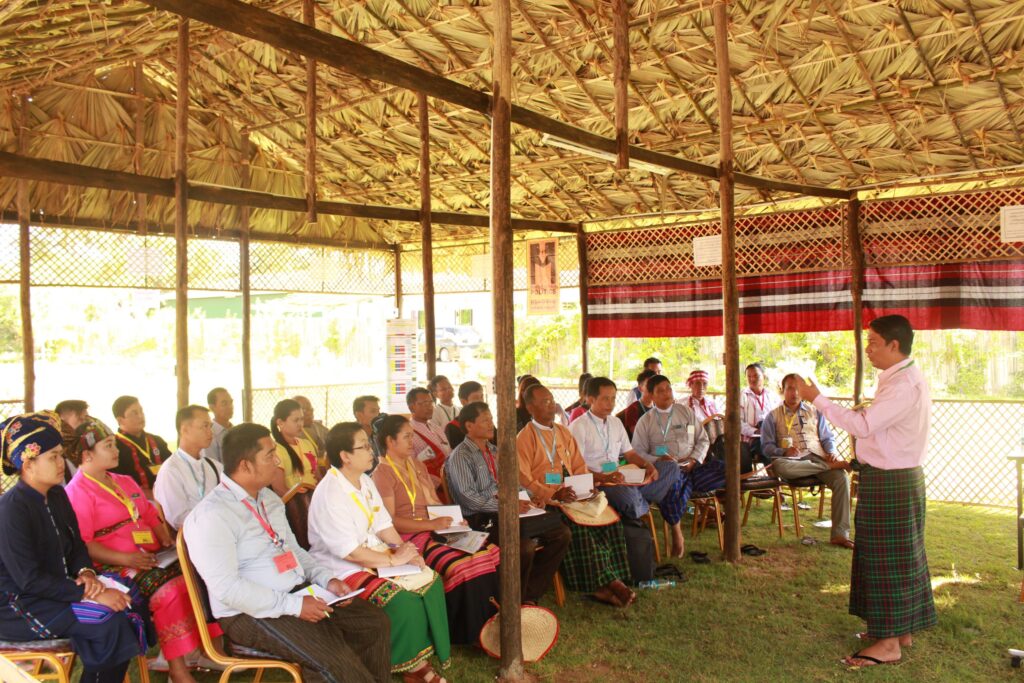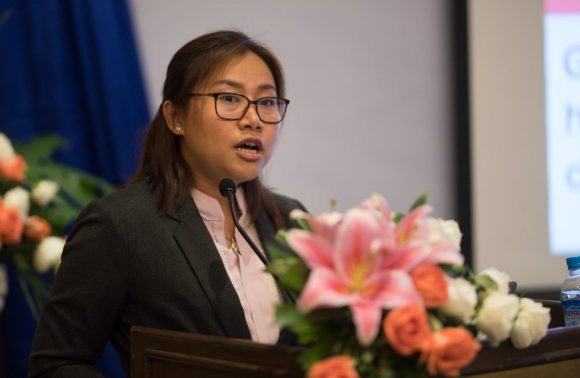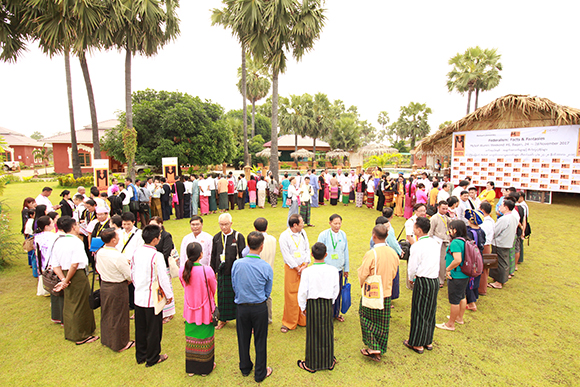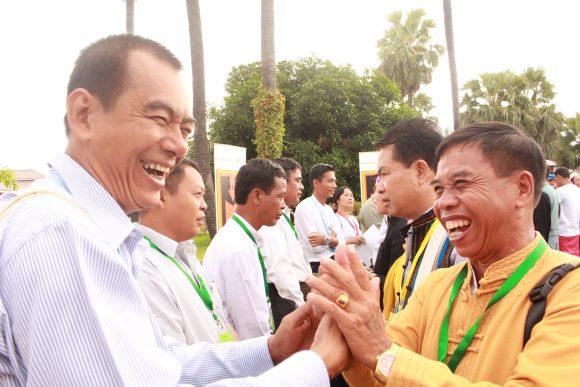Democracy isn’t built in a day: The case of Myanmar DO NOT USE

Whenever any country makes its first hopeful steps towards a more democratic government, we are easily inclined to conclude that it has become a democracy.
But real democracy is more than just elections.
It is diversity, accountability and inclusion… It is politicians and political institutions that respond to the needs of the population, and it is a population that calls its politicians to account. And these changes require much more time.
In this series of articles, written by journalist Joris Tielens for the NIMD-Vice Versa Democracy Special, we explore the aftermath of the first steps towards democracy in three very different countries: Tunisia, Colombia and Myanmar.
Part 3: Myanmar
Myanmar has a long history of violence. Since 1962, it has been under a military dictatorship, one that has been showing cracks ever since the protests staged by Buddhist monks in 2007.
At the close of 2010, opposition leader Aung San Suu Kyi was released from house arrest, and Myanmar held its first free elections in November 2015. However, it is not yet considered a free democracy, but rather a democratic-authoritarian hybrid.
The Constitution dictates that the army has the right to appoint ministers, holds seats in parliament and can appoint civil servants. The new civilian Government only has limited control, with three ministries, including that of defence, held by the army.
Further, ethnic tensions continue to divide the nation. In 2017 serious sectarian incidents in Rakhine State and elsewhere resulted in hundreds of thousands of refugees.
Ethnic groups have their own – sometimes large – armed militias, explains Htet Oo Wai, NIMD’s country representative in Myanmar, who has years of experience in peace-building and conflict mediation. ‘Civil war is still raging in large parts of the country, and the violence is increasing. There is no ceasefire on the horizon.’

The role of history
To understand Myanmar, you can’t forget that it existed under a military dictatorship for 60 years. ‘This has impacted on knowledge levels about how a democracy works as well as on ideas and debates – until recently, all discussion on politics was banned. You could not express your opinion freely.’
This goes back to the British colonial regime, which pursued a policy of divide and rule. ‘That approach led to the lack of trust between people and between ethnic groups. It was furthered and reinforced under the dictatorship and military leaders still use it to retain their positions. The ethnic conflict continues and, to this day, the army is maintaining its power.’
Building trust through the Myanmar School of Politics
Inclusivity is, according to Htet Oo Wai, the central point of focus for the work NIMD performs. ‘We welcome diversity.’ Using funding from NIMD and DEMO Finland, The Myanmar School of Politics was created to bring together representatives of political parties – from the coalition, opposition parties and from ethnic groups.

The attendees take a 20-day course in a secure and remote location to learn about democratic values and political practices, such as negotiating and mediating. The alumni regularly meet up once they have graduated.
‘The objective is to build trust by working together to make visible improvements.’ One success story was in Shan State, where people worked together to draft a law on food safety.
‘By initially choosing a minor political topic, the parties were able to enter into a dialogue with each other.’ It was the first law submitted by multiple political parties and it was also adopted by Parliament. ‘We’re very proud of that.’
This paved the way for similar talks on more sensitive matters, says Htet Oo Wai. ‘Opposition parties or small ethnically-based regional parties are now meeting with the Government to discuss matters – that’s a great achievement. Until 2012, politics was a taboo, and this school is a pioneer.’

High expectations
The expectations of the international community were initially too high, she believes. When Aung San Suu Kyi was released many people thought that Myanmar would soon be a democracy. ‘The process is not that fast, given the role of the military authorities and the limited role played by the civil government.’
‘We’re in a period of experimentation, of falling down and standing up again, of two steps forward and one step back. You cannot expect a military dictatorship to become a democracy at the wave of a wand when a single person is released from house arrest.’
In a political sense, the country is still deadlocked, she says. ‘But we have placed our hope in the 2020 elections, after which the Constitution can probably be reformed. Many citizens do not want to return to the past.’
She already sees small changes. ‘In the past, you couldn’t criticize the Government, but now you hear many more debates in the tea shops. That is a very positive sign.’
Just like in Tunisia and Colombia, the situation in Myanmar shows that elections are not the end-point of democratization. More is required. The first steps towards democracy are always followed by great expectations. But the true path towards democracy takes time and investment.
On Monday 10 February, NIMD is partnering up with Vice Versa to host “Talkshow: Een Inclusieve Democratie” in The Hague. The talkshow will bring experts from the forefront of the democratization movement together, featuring current and former politicians and experts from civil society.